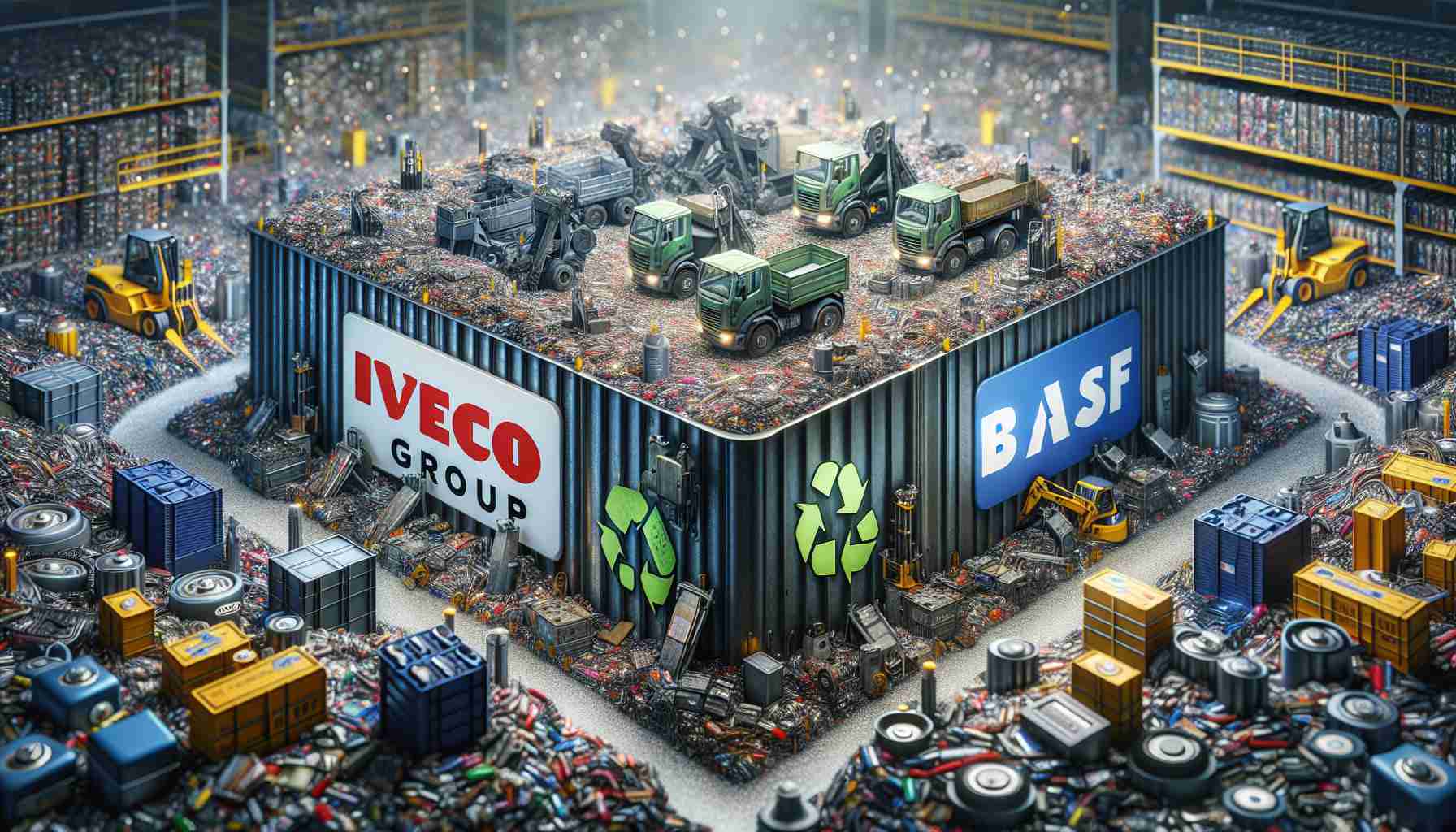Iveco Group, the leading Italian manufacturer of trucks and buses, has partnered with German chemicals giant BASF to implement an innovative recycling program for lithium-ion batteries used in its electric vehicles (BEVs). The objective of this strategic partnership is to extend the lifespan of batteries and minimize their environmental impact, aligning with Iveco’s commitment to a circular economy.
As per the agreement, BASF, a prominent supplier of chemicals for automotive batteries, will manage the recycling process at its advanced facility in Schwarzheide, Germany. This facility acts as a center for battery material production and recycling, enabling the extraction and reuse of valuable raw materials like nickel, cobalt, and lithium from the batteries.
Iveco’s BEV vans, buses, and trucks will undergo a comprehensive recycling process, which includes collection, packaging, transportation, and recycling operations across multiple countries in Europe. By mechanically processing the batteries into the “black mass,” BASF can recover essential materials and provide recycled metals to the local battery industry within Europe.
This collaboration not only reinforces Iveco’s circular economy strategy but also aligns with the principles of Extended Producer Responsibility (EPR). According to EPR, manufacturers are responsible for their products throughout their entire life cycle, including the post-consumer and end-of-life stages.
Angela Qu, Chief Supply Chain Officer at Iveco, expressed her confidence in partnering with BASF, stating that “BASF’s extensive battery collection network and recycling capabilities in Europe will enable us to close the loop from end-of-life batteries to the creation of new ones.”
By prioritizing sustainability and pursuing innovative recycling initiatives, Iveco and BASF demonstrate their dedication to reducing waste and promoting responsible resource management in the automotive industry. This collaboration marks a significant step towards a greener and more sustainable future for electric vehicles.
The source of the article is from the blog newyorkpostgazette.com
